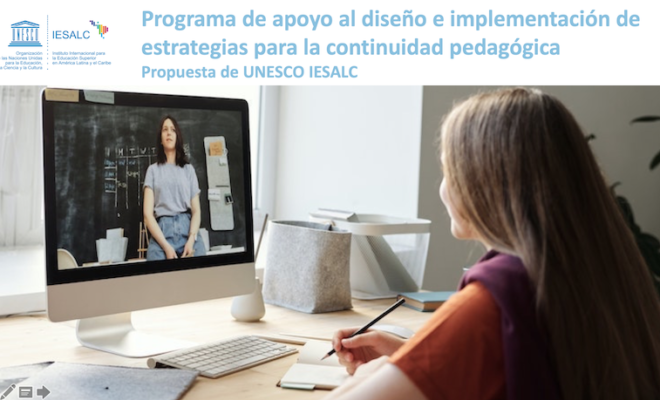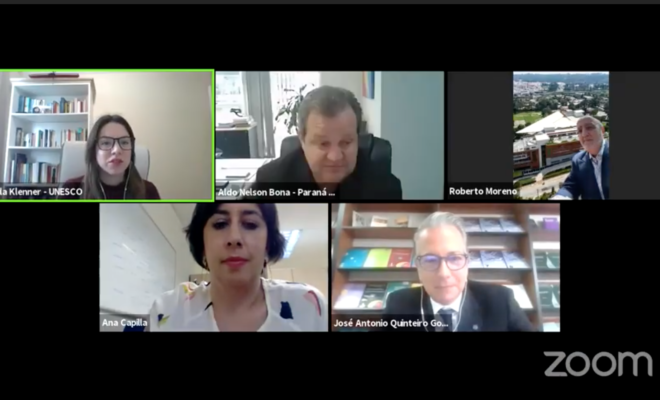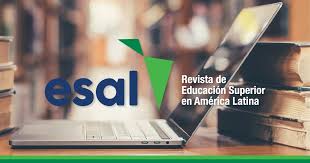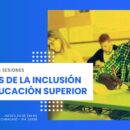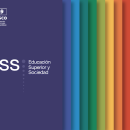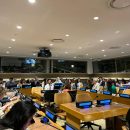IESALC launched the FIESA 2021 webinar series
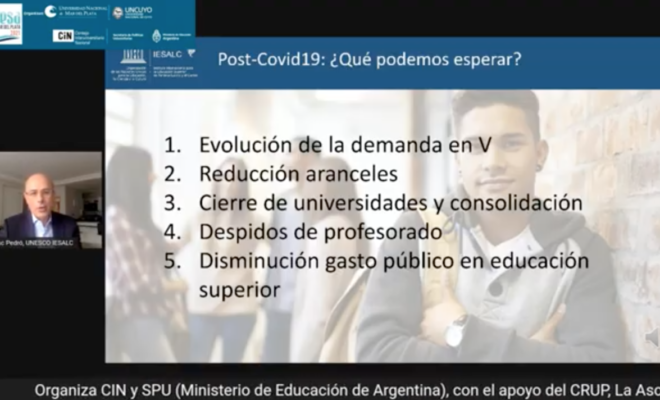
The International Institute of Higher Education for Latin America and the Caribbean (IESALC) participated on June 2, 2020, in the Argentinian Higher Education Fair – FIESA, in which representatives of 186 universities and of the 30 countries that form part of this event, met in a virtual way, which added up to more than 450 online participants.
As a prelude to this session, Daniel Antelucci, vice-rector of the Universidad Nacional de Mar del Plata, spoke, reminding the audience that FIESA is a fair that aims to articulate regional policies with the world’s higher education agenda, especially in the South-South agenda and in Latin America’s relations with the North. This is the first webinar in a series of 10 presentations on internationalization initiatives.
He was followed by Jimena Estrella, Research, International and Postgraduate Secretary of the Universidad Nacional de Cuyo, who presented this first webinar of a series, to reflect on the great challenges of internationalization in times of pandemic.
Francesc Pedró, director of the UNESCO International Institute of Higher Education for Latin America and the Caribbean IESALC, began the meeting with the presentation of the recently-released report that addresses the challenges, opportunities and impacts of the post-pandemic in higher education.
 He stressed the importance of identifying all the opportunities that this health crisis presents for the entire world, and specifically for higher education organizations.
He stressed the importance of identifying all the opportunities that this health crisis presents for the entire world, and specifically for higher education organizations.
The lack of connectivity, in which only 51% of Latin America has the minimum conditions to have distance classes, is one of the problems that the university community faces. This difficulty presents a viable option for both students and teachers: each member of the community has a smartphone, so there is an open window.
In the same way, he indicated that in most of the LA countries there are more cell phone lines than people, which suggests that for the next opportunity of a pedagogical emergency we have to take advantage of these practically universal technologies in higher education.
“One of the great risks of distance higher education continues to be abandonment, which has a lot to do with a process of self-regulation of learning, which means self-discipline to set a schedule and follow a routine,” he indicated as one of the problems in the current situation.
Other difficulties pointed out by the director of the IESALC were: evolution of the demand for university quotas; reduction of tuition fees; closure of universities; dismissal of professors and decrease in public expenditure on higher education.
In regard to the reopening of higher education institutions, he presented strategies to assume the future with less anguish and negative expectations, to smoothly take on “the new normal” and take advantage of it. He emphasized that neither during nor at the reopening should we leave any student behind. We must draw lessons from the results achieved and generate the higher education that the 21st century expects of us.
To conclude, Pedró showed the strategy proposed by IESALC for support, exit and transformation: “We must focus on support and also on planning for reopening. Universities have to create mechanisms for the recovery of learning, with reliable evaluation mechanisms with which the solutions that times demand can be made sustainable.”
RELATED ITEMS

